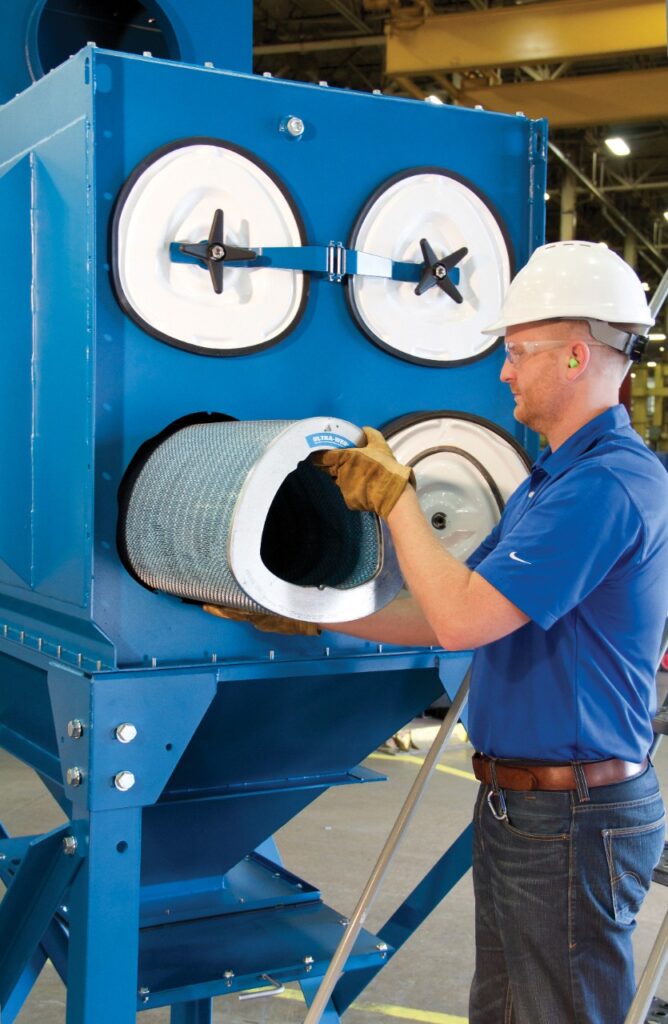Maximizing Operational Lifespan – How Dust Collectors Extend Equipment Life
In industrial settings, dust generation is an inevitable byproduct of various processes. Whether in woodworking, metalworking, food production, or pharmaceuticals, dust can significantly impact equipment performance and longevity. Dust collectors play a crucial role in managing this challenge, ensuring a cleaner environment that enhances operational efficiency and extends the lifespan of machinery. Dust collectors are specialized systems designed to capture and filter airborne particles generated during manufacturing processes. They utilize various technologies, including bag filters, cartridge filters, and cyclonic separation, to remove dust from the air, preventing it from settling on machinery and work surfaces. By maintaining a clean environment, dust collectors help mitigate several issues that can adversely affect equipment lifespan.

Reducing Wear and Tear
One of the primary ways dust collectors extend equipment life is by reducing wear and tear on machinery. Dust and particulate matter can accumulate on moving parts, leading to increased friction and heat. Over time, this accumulation can cause components to wear out more quickly, resulting in frequent maintenance and costly repairs. By capturing dust at the source, dust collectors significantly reduce the amount of particulate matter that can settle on equipment, thereby enhancing its longevity.
Preventing Clogging and Blockages
In many industrial applications, dust and debris can lead to clogs and blockages in equipment. For instance, in ventilation systems, a build-up of dust can restrict airflow, causing motors to work harder and increasing energy consumption. Similarly, in processing equipment, dust accumulation can interfere with the intended flow of materials. The dust collector troubleshooting help prevent these issues by maintaining clean air and surfaces, thus ensuring that machinery operates smoothly and efficiently.
Enhancing Safety and Compliance
Beyond protecting equipment, dust collectors also contribute to workplace safety and regulatory compliance. Dust can pose serious health risks to workers, leading to respiratory problems and other health issues. By controlling dust levels, dust collectors not only safeguard employee health but also ensure compliance with occupational safety regulations. A safer work environment reduces the likelihood of accidents that could otherwise lead to equipment damage or downtime.
Improving Product Quality
Dust contamination can compromise the quality of finished products. In industries like food processing or pharmaceuticals, even small amounts of dust can lead to product defects. By employing effective dust collection systems, manufacturers can maintain high standards of product quality, reducing waste and the need for rework. This focus on quality indirectly supports equipment longevity, as consistent product output minimizes the strain on machinery and look at this site www.tysum.com.
Investing in dust collectors is not merely an operational necessity it is a strategic decision that pays dividends in equipment longevity and overall efficiency. By reducing wear and tear, preventing blockages, enhancing workplace safety, and improving product quality, dust collectors play a pivotal role in maximizing the operational lifespan of industrial machinery. As industries continue to prioritize efficiency and sustainability, the role of dust collectors in ensuring a cleaner, safer, and more productive environment cannot be overstated. Adopting these systems is a proactive step toward not only protecting equipment but also fostering a culture of excellence within manufacturing processes.
